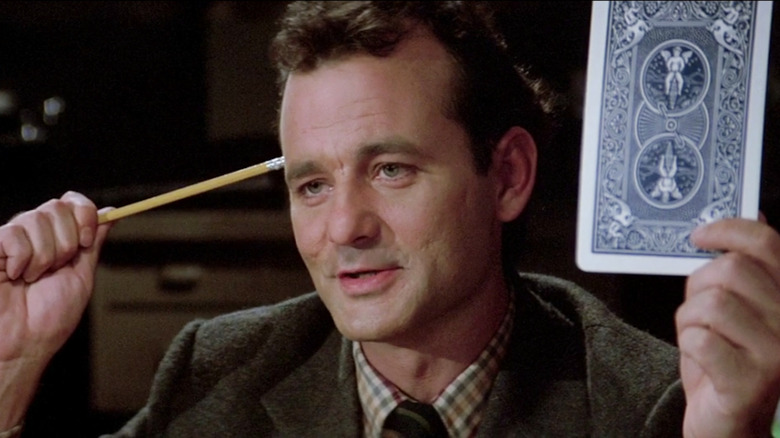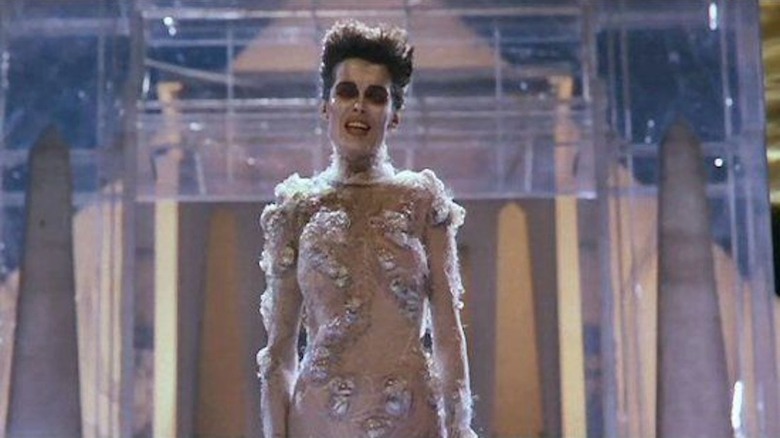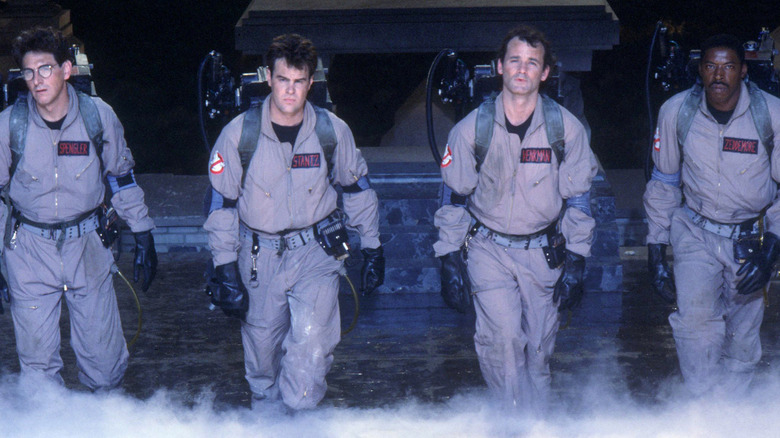Bill Murray's Ghostbusters Line 'This Chick Is Toast' Is Responsible For Creating New English Slang
In 1997, when 20th Century Fox's "Volcano" inexplicably found itself embroiled in a disaster-movie war with Universal's lava-spewing thriller "Dante's Peak," the studio's marketing department (considered at the time to be the best in Hollywood) hit upon a catchy tagline: "The Coast is Toast." Who didn't want to see Los Angeles reduced to molten rubble by a massive volcano lurking beneath the surface of Wilshire Boulevard's Miracle Mile? (This might sound morbid, but no one was more excited by this prospect than Angelenos.)
Using "toast" as a noun to denote a state of utter ruin was commonplace in '97, but it struck William Safire, The New York Times' "On Language" columnist and former speechwriter for President Richard M. Nixon, as noteworthy. So, in a piece titled "History Is Toast," Safire attempted to chase down the origin of "toast" as a replacement colloquialism for "history." His search, aided by the Oxford English Dictionary research staff, led him to a 1987 St. Petersburg Times story, which featured the sentence "Hey, dude. You're toast, man." He then cited a passage from a George Will column in 1988, and considered the matter settled.
As a faithful reader of Safire's column (and a fan of his prose in general, despite our political differences), I was gobsmacked (a word he never got around to investigating). He should've known that a solitary sentence in the St. Petersburg Times was insufficient to turn "toast" into a verbal phenomenon.
He should've known "toast" was coined by Bill Murray three years prior in Ivan Reitman's "Ghostbusters" ... kind of.
A toast-y conundrum
I saw "Ghostbusters" three times theatrically in 1984, and, thanks to countless childhood viewings on home video and cable, could basically quote the film front to back. So when I read William Safire's column in 1997, I was both elated and disappointed to know he was dead wrong.
To be fair, Safire was born in 1929 and probably hadn't been knocked sideways by the horror-comedy classic. Still, "Ghostbusters" was a major cultural event. Surely, someone on the OED's research staff was young enough to recall Peter Venkman, fed up with Gozer the Gozerian's inter-dimensional antics, declaring "Alright, this chick is toast!"
The following Monday, I fired off an email to the Times Magazine's account from my work computer (this was 1997, and I did not have home internet access). Alas, I never heard back from anyone at the publication, much less Safire. Perhaps, in an age when professionals shelled out loads of cash to search computer databases via LexisNexis, they felt less than confident in naming Bill Murray the godfather of "toast."
Or maybe someone realized the line wasn't entirely of Murray's creation.
A toast to Dan Aykroyd and Harold Ramis (and Murray)
Dan Aykroyd and Harold Ramis, at the very least, deserve an assist for the coining of "toast" as a noun connoting doom. As Ben Zimmer shared in a recent Wall Street Journal piece, the pair's original screenplay found Venkman exclaiming, "That's It! I'm gonna turn this guy into toast!" (Gozer assumed a male form in this iteration.) But it's unlikely this line would've provoked cheers and roaring laughter as Bill Murray's pronouncement did.
Interestingly, Zimmer noted the OED now recognizes Murray's outburst as the "earliest known" use of the term. I guess these word nerds just weren't on the case 26 years ago. I'm also tickled that William Safire's article was inspired by the recent discussion of former U.S. president Donald J. Trump's dire legal situation. He makes no mention of Safire's article, which, obviously, has lingered in memory for me. Surely, he came across it in his research.
While I'm still a touch miffed I was denied my day in the etymological sun, what matters is that we finally set the record straight. The "toast" discourse is, at long last, history.


